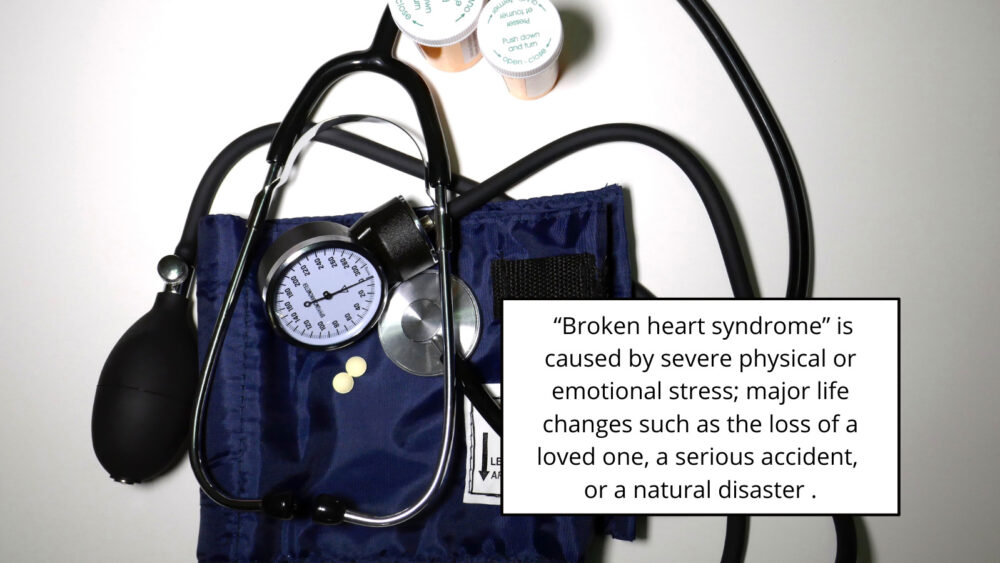A new study reveals that cases on “broken heart syndrome” are steadily on the rise in the United States.
Otherwise known as takotsubo cardiomyopathy, this temporary condition can be recognized by symptoms that mimic a heart attack: chest pain, shortness of breath, and weakened heart muscles, according to Harvard Health. Other symptoms include irregular heartbeat, fainting, low blood pressure and cardiogenic shock. But instead of being the result of an arterial health issue, “broken heart syndrome” is caused by severe physical or emotional stress; major life changes such as the loss of a loved one, a serious accident, or a natural disaster can all trigger this illness. In most instances, this condition is temporary, with symptoms usually clearing up within a few days.
This condition also almost exclusively affects women. More than 90% of reported cases are in women ages 58 to 75, according to Harvard Health.
Recently, researchers have found that cases have increased over the last several years. Using data from the National Inpatient Sample database, researchers looked at more than 135,000 cases of broken heart syndrome reported between 2006 to 2017.
The study, published in the Journal of the American Heart Association last month, found that although cases increased across the board for all populations during this time period, the rise in diagnoses was “especially pronounced among women aged [over] 50 years.”
“There is something potentially going on around the perimenopausal period such that just beyond 50 and up until age 74,” Dr. Susan Cheng, a senior author of the study and director of public health research at Cedars-Sinai’s Smidt Heart Institute in Los Angeles, told Today.
“There’s this window of opportunity for the condition to develop in women. Their heart is vulnerable,” she continued.
A study published last year found that there has been a rise in this condition during the COVID-19 pandemic. In a press release, researchers explained that after examining 258 patients with acute coronary syndrome between March 1 and April 30, they found a 7.8% increase in patients diagnosed with stress cardiomyopathy, as compared to 1.7% prior to the pandemic.
“The COVID-19 pandemic has brought about multiple levels of stress in people’s lives across the country and world. People are not only worried about themselves or their families becoming ill, they are dealing with economic and emotional issues, societal problems and potential loneliness and isolation,” explained Cleveland Clinic cardiologist Ankur Kalra, M.D., who led the study, in a press release.
“The stress can have physical effects on our bodies and our hearts, as evidenced by the increasing diagnoses of stress cardiomyopathy we are experiencing,” she added.



